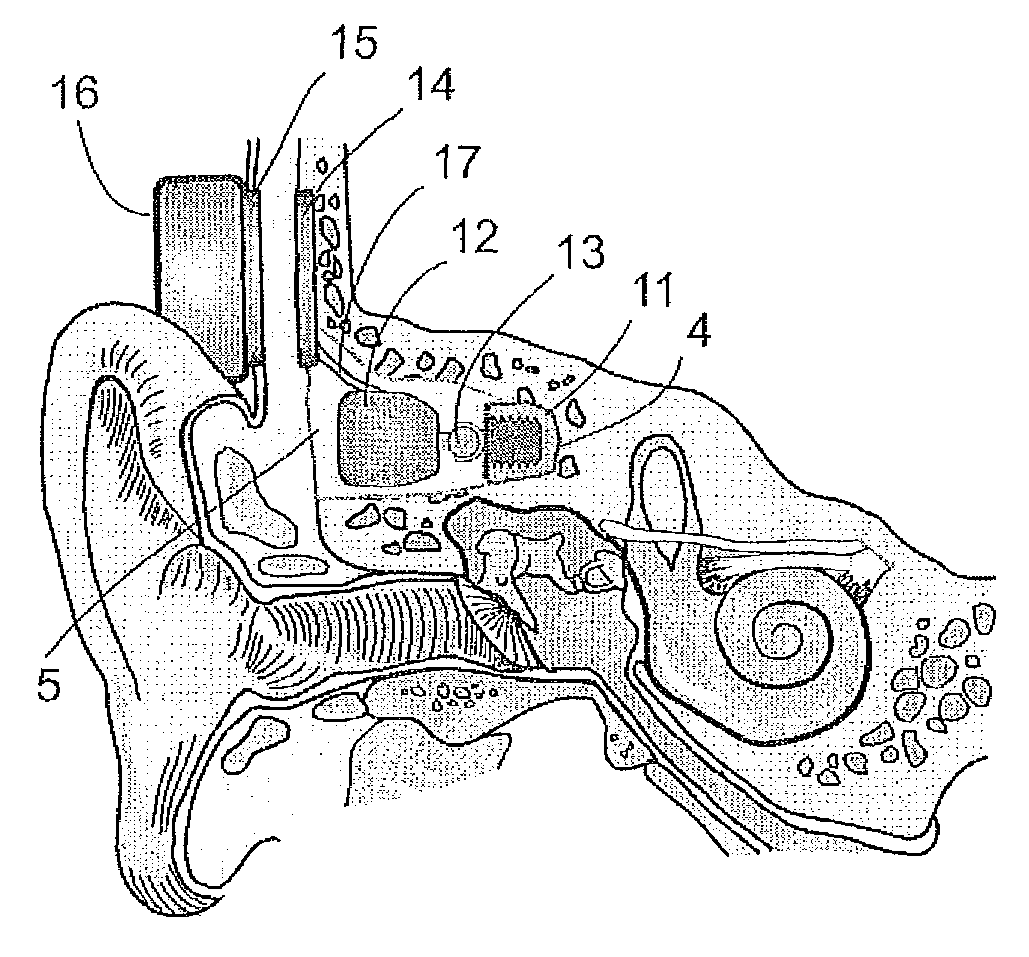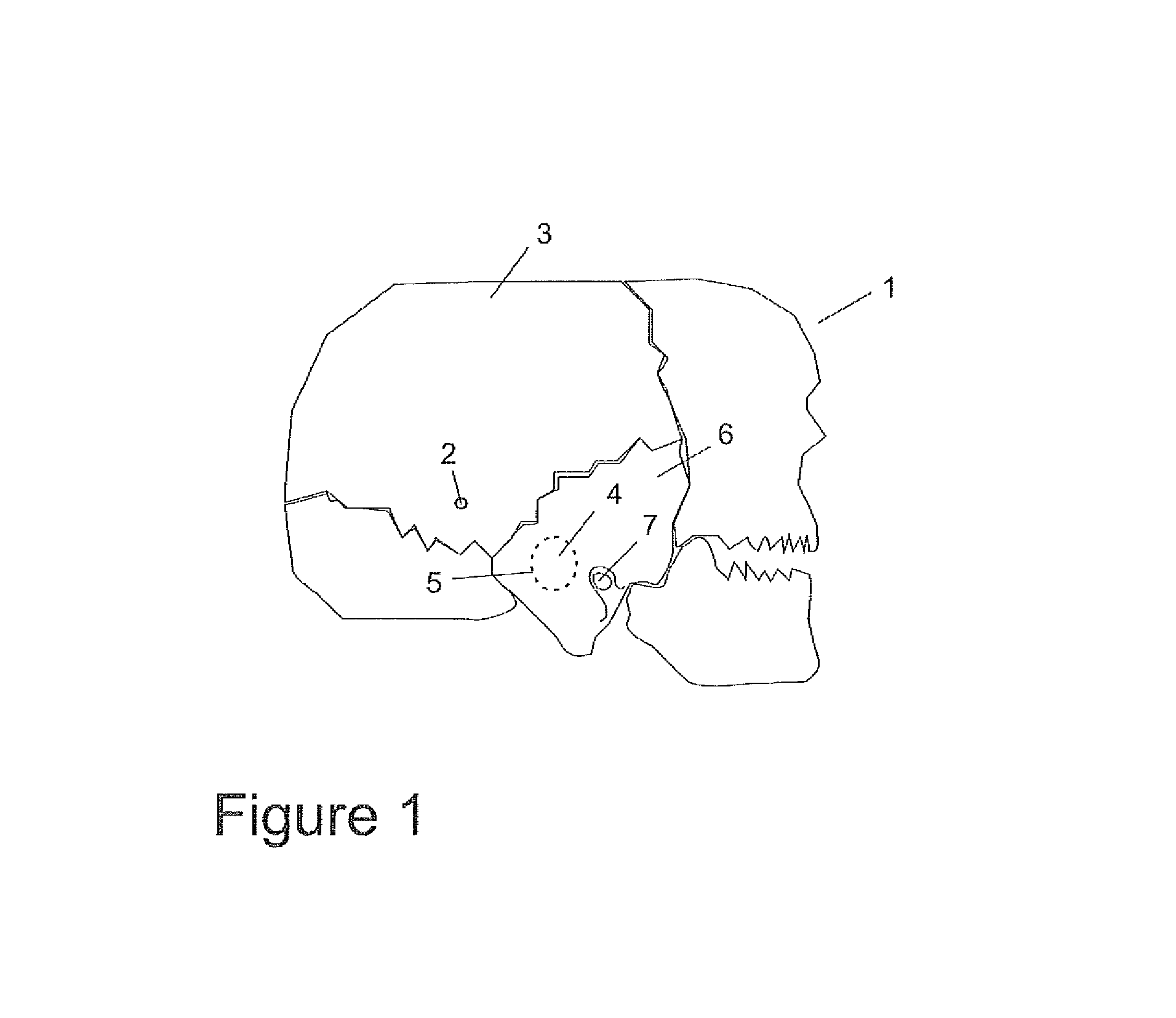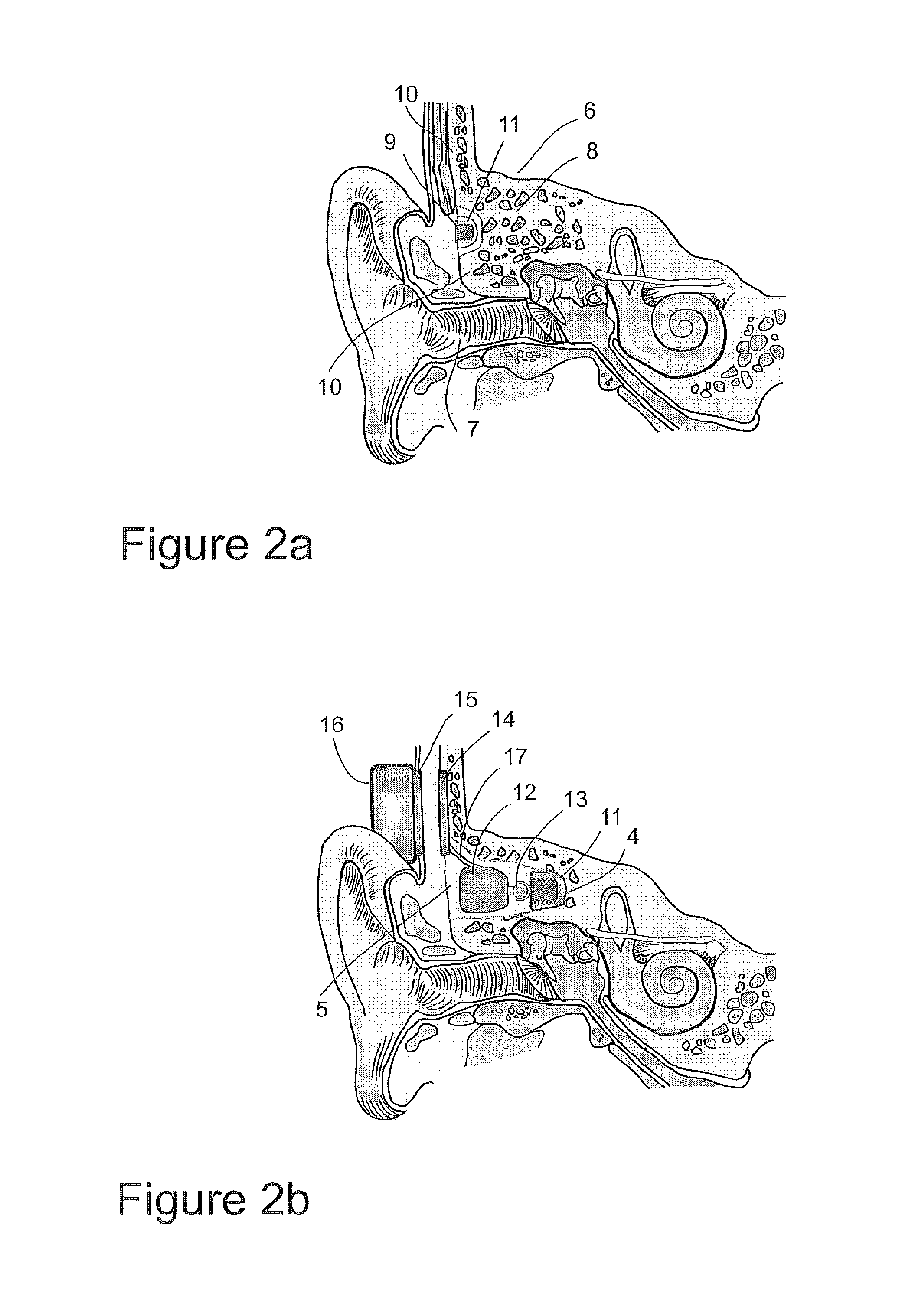Implantable transducer
a transducer and implantable technology, applied in the direction of sleep inducing/ending devices, sensors, diagnostics, etc., can solve the problems of osseointegration and low fastening effect, and achieve the effect of low fastening effect and easy removal
- Summary
- Abstract
- Description
- Claims
- Application Information
AI Technical Summary
Benefits of technology
Problems solved by technology
Method used
Image
Examples
Embodiment Construction
[0048]As is shown in FIG. 1 the skull (1) is composed of different bone plates which are held tightly together with so called sutures. In a conventional bone anchored hearing aid (BAHA) the bone screw (2) is placed in the parietal bone (3). In the present innovation the transducer is connected to the bottom plane (4) of the inner part of a recess (5) in the temporal bone (6). The recess is created directly behind the entrance of the ear canal (7) in that part of the temporal bone which is commonly referred to as the mastoid.
[0049]For medical reasons it is not custom to drill or screw a hole into the bottom plane of the recess (5) where the bone as shown in FIG. 2a consists of many air cells or so called spongy bone (8). Consequently it has been suggested that a bone screw (9) for attachment of an implantable transducer is first installed in the outer layer of compact bone (10) and then the surrounding bone is removed as a bone graft (11). Then a recess is drilled in the bone (5) and...
PUM
 Login to View More
Login to View More Abstract
Description
Claims
Application Information
 Login to View More
Login to View More - R&D
- Intellectual Property
- Life Sciences
- Materials
- Tech Scout
- Unparalleled Data Quality
- Higher Quality Content
- 60% Fewer Hallucinations
Browse by: Latest US Patents, China's latest patents, Technical Efficacy Thesaurus, Application Domain, Technology Topic, Popular Technical Reports.
© 2025 PatSnap. All rights reserved.Legal|Privacy policy|Modern Slavery Act Transparency Statement|Sitemap|About US| Contact US: help@patsnap.com



